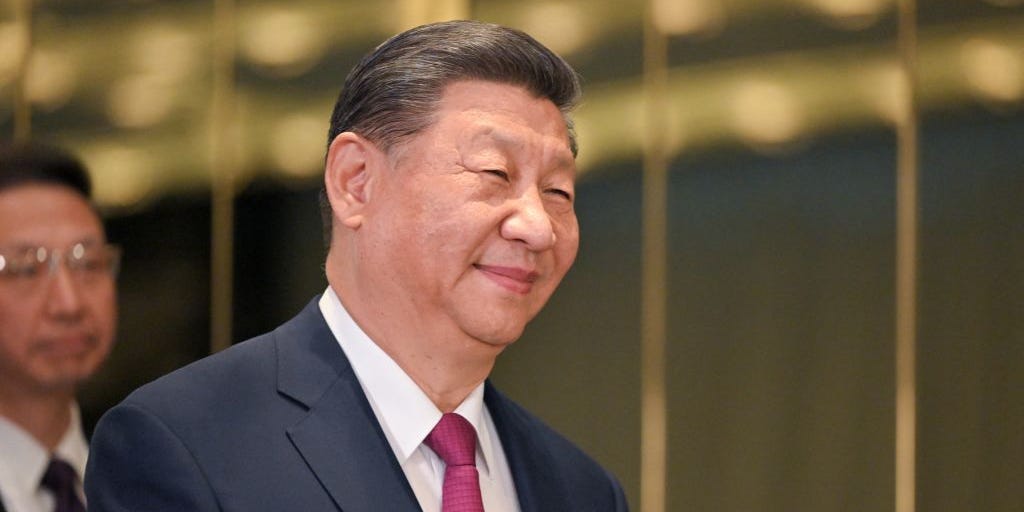A top economist has joined the growing list of China’s elite to have disappeared from public life after criticizing Xi Jinping, according to The Wall Street Journal.
Zhu Hengpeng served as deputy director of the Institute of Economics at the Chinese Academy of Social Sciences (CASS) for around a decade.
CASS is a state research think tank that reports directly to China’s cabinet. Chen Daoyin, a former associate professor at Shanghai University of Political Science and Law, described it as a “body to formulate party ideology to support the leadership.”
According to the Journal, the 55-year-old disappeared shortly after remarking on China’s sluggish economy and criticizing Xi’s leadership in a private group on WeChat.



In my opinion, I did provide it. I could link The German Ideology and Socialism: Utopian and Scientific, and if you read them you would perhaps understand Dialectical and Historical Materialism better, but we are having a discussion on Lemmy. The capacity for sharing information and the expecations for a single thread of replies are very low.
Marx was incredibly intelligent, but he couldn’t predict the future, thus, like I have linked in Critique of the Gotha Programme, the closest we can get is his insistence that the next Mode of Production emerges from the previous. Asking for a quote for him saying “communism is when you eliminate private property, struggle a ton, then bring it back in a controlled manner and gradually increase public ownership” won’t happen, because the initial failure isn’t necessary.
Imagine trying to build a modern cell phone with bronze-age technology. You can’t, just like you can’t materialize Communism through fiat without developing the Means of Production. Marxism isn’t Utopian, ie it isn’t about picking a good society and forcing it into existence, regardless of the level of development of the Means of Production. Marxism is Scientific, ie it focuses on historical developments, the Mode of Production is tied to the technological level of the Means of Production. Feudalism disappeared after the Industrial Revolution, largely, and not earlier. Having achieved a backwards, idealist, impoverished “communism” like under Mao and the Gang of Four goes against Marx’s theory of historical development of class society, and China paid the price for ignoring that.
Theory must meet practice, and practice must inform theory. The PRC tried to establish Communism without developing the Means of Production adequately, readjusted, and has now rapidly developed. Holding an ultra-Maoist line like the Gang of Four that insisted it is better for the Proletariat to be poor under Socialism than rich under Capitalism is Revisionism. Maoist Theory regarding Class Struggle did not meet practice, therefore the correct choice was to take a gradualist approach while maintaining CPC control so that when the Means of Production are more developed, they can be more Socialized in turn as Socialism emerges from Capitalism.
This is insulting, especially considering you haven’t attempted to respond to the rest of my comment, where I try to actually engage with modern analysis of a country Marx never lived to see and actively analyze. If clearly high-effort replies are considered “trolling” and “bad-faith” by your standards, then how can you consider your “gotchas” any better?
You’re nice for engaging in good faith.
It’s a bit funny that people who seem to think they are the politics, Marx, and communism understanders don’t even seem to understand basic Marxism that I picked up in an intro to political philosophy class, which covered Marx for all of about two weeks.
Thanks. In my opinion, people easily fall into idealist critiques of Marxists if they don’t read Marx. The Marxist critique of Capitalism is easy enough to grasp the basics of, as well as the Marxist idea of Socialism as Worker Ownership of the Means of Production, but concepts like the Marxist theory of the state, historical development, and Dialectical and Historical Materialism are much less intuitive.